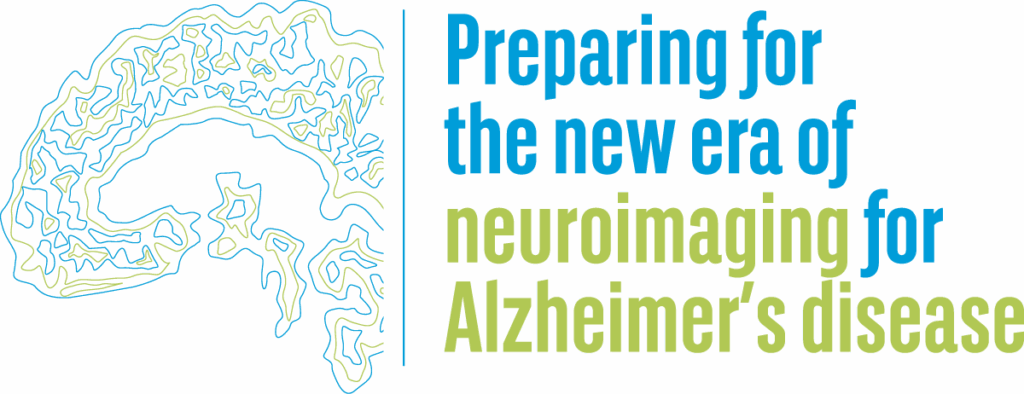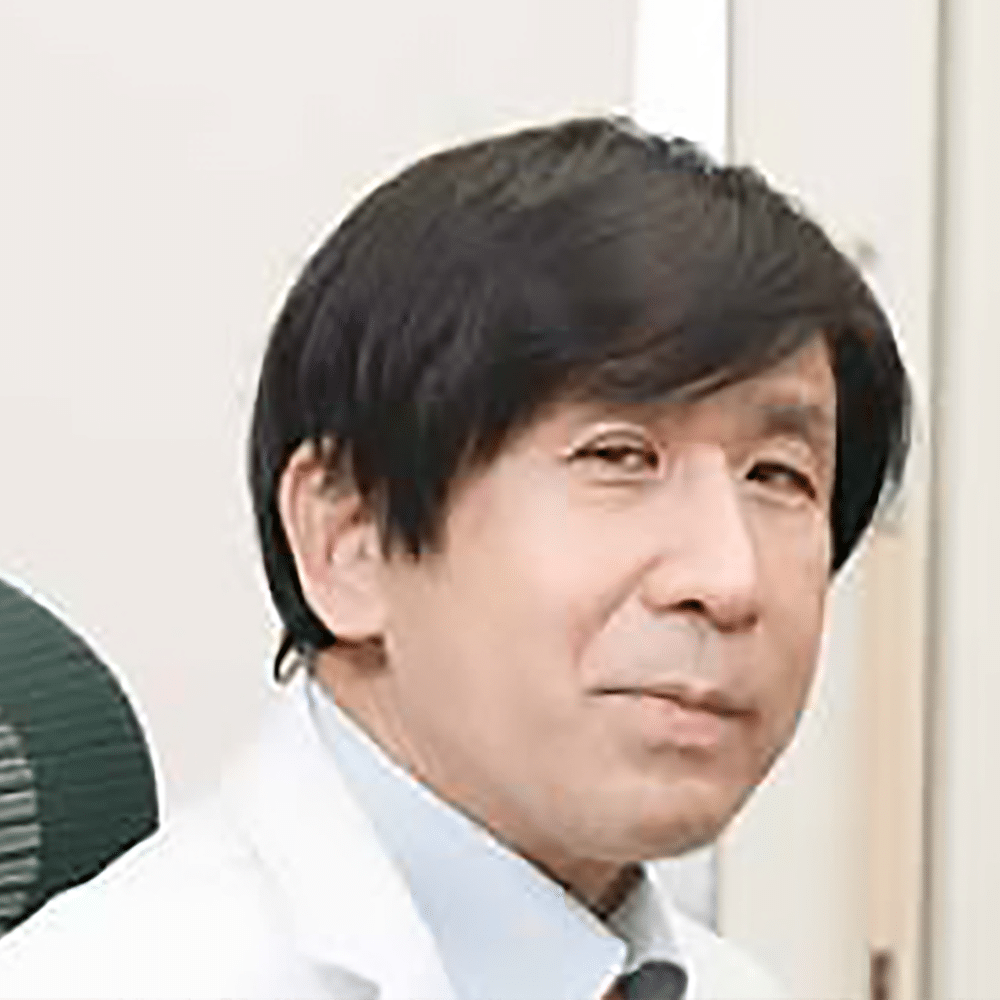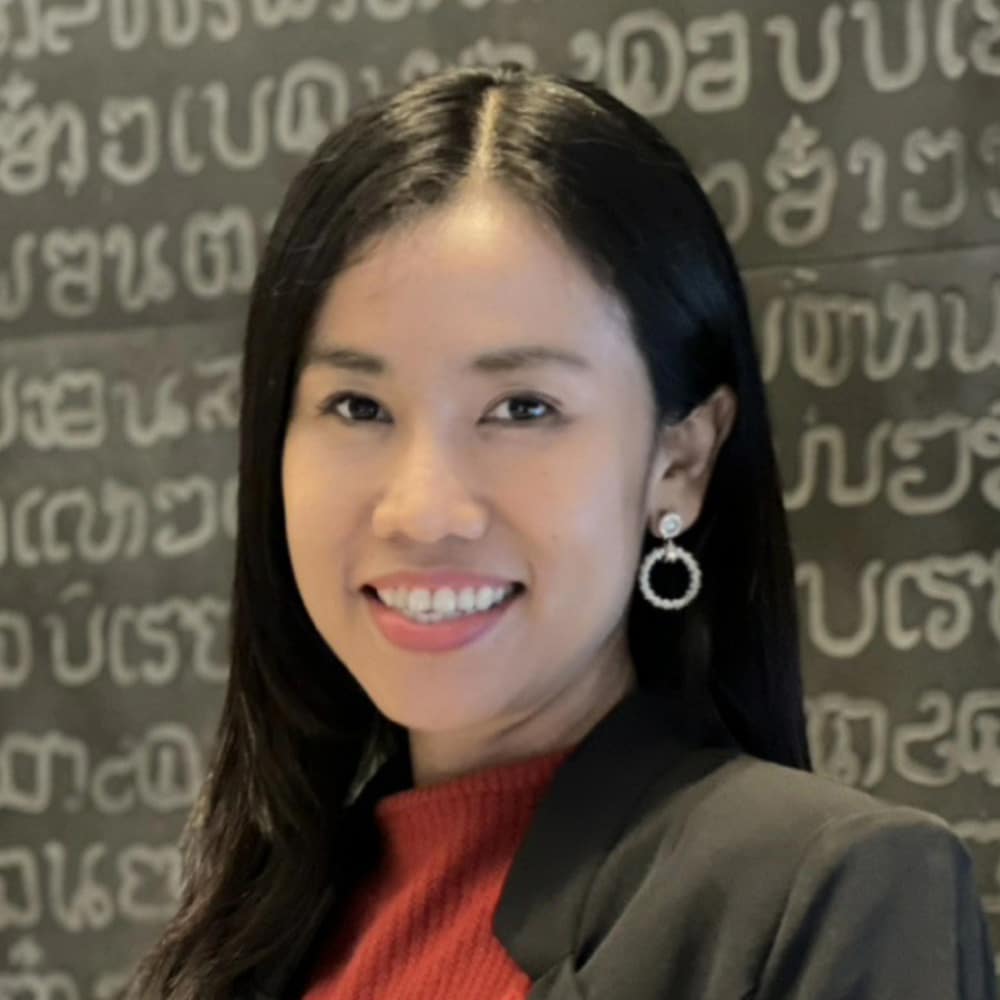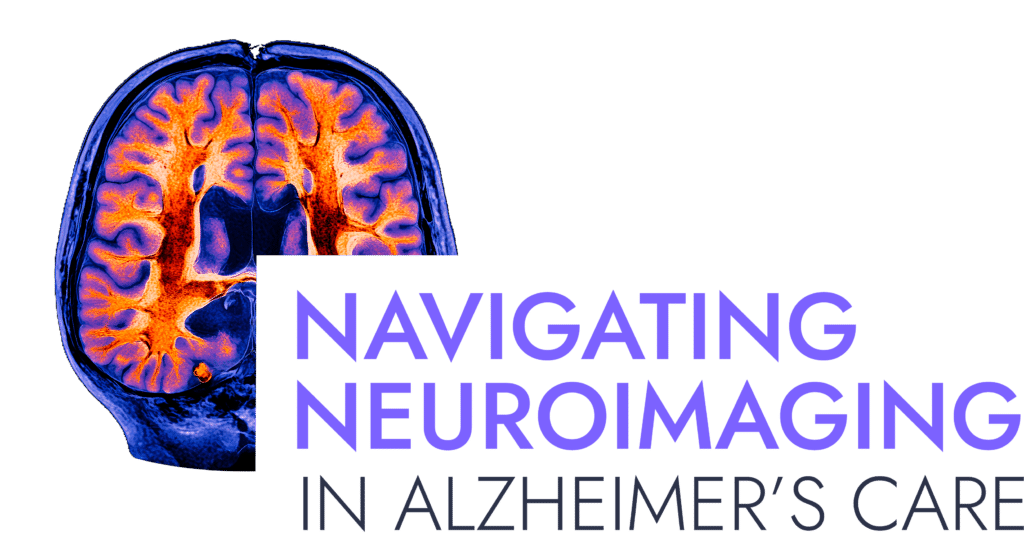Welcome
As the landscape of Alzheimer’s disease continues to evolve, PET imaging is playing an increasingly critical role in early and accurate diagnosis, disease staging, and treatment decision-making. But how can nuclear medicine and radiology physicians effectively integrate PET imaging into clinical practice while navigating regional variations, emerging tracers, and evolving guidelines?
Join us for an exclusive, expert-led program designed to empower you with the latest insights, practical strategies, and real-world case studies on PET imaging in Alzheimer’s disease. Featuring leading experts from Europe, Asia, and the USA, this program will provide a global perspective on best practices, challenges, and decision-making tools to optimize patient care.
Stay ahead in this rapidly advancing field and help drive for a better future for Alzheimer’s care.
Imaging Exchange
Join the conversation
Send in your questions, comments, or cases for our expert faculty and engage with your colleagues.
To access content, submit questions or add and view comments you will need to be registered and logged in to this website.
Latest content
Apply & Practice
Case Challenge Asia: Imaging Gradual Cognitive Decline
Apply & Practice
Case Challenge USA: Biomarkers and Imaging-Guided Treatment Decisions
Apply & Practice
Case Challenge Europe: Imaging Subtle Cognitive Progression
Apply & Practice
Case Challenge Asia: Imaging Cognitive and Language Syndromes
Apply & Practice
Case Challenge USA: Interpreting Cognitive Decline and Parkinsonian Features
Practice
Clinical Aid for European Practice
Practice
Clinical Aid for Asian Practice
Practice
Clinical Aid for US Practice
Learn & Apply
Expert Exchange: The Europe Perspective
Learn & Apply
Expert Exchange: The Asia Perspective
Imaging Exchange: Latest Submissions
- Europe
Q: What value do you see in quantitative/centiloid versus visual “categorical” assessment of amyloid PET scans?
- USA
Q: What is the added value of CL scale in clinical practice?
- Asia
Q: What are your suggestions for the order of NM neuroimaging for dementia and movement disorder? For example, should they start with FDG/brain perfusion SPECT first then amyloid or vice versa in dementia, or FDG/brain then DaT/MIBG scan or vice versa.
- Europe
Q: What do you believe will be the main indications for tau PET in the clinical setting in the near future?
- 2 comments
Our Content: Your Learning
Expert Exchange
Region-focused expert exchanges on neuroimaging for earlier detection of Alzheimer’s disease, focusing on the optimal use and integration of imaging biomarkers.
Clinical Aid
Concise infographic reference guide to support you to integrate PET imaging into your routine clinical practice.
Case Challenge
Put your PET tracer selection and interpretation skills into practice in a simulated environment.

To complement this program explore educational resources that focus on the multidisciplinary care team to implement advances in biomarkers to improve diagnosis and management of patients with Alzheimer’s disease.

Refer back to our previous neuroimaging program for PET Pearls, an interactive activity to help you improve your interpretation of amyloid PET scans using real case examples.
Last updated: December 2023
Learning Objectives
Following completion of this independent educational program, you will be able to:
- Discuss the role of current and emerging PET biomarkers, including their strengths and weaknesses, in achieving a timely and accurate diagnosis of Alzheimer’s disease
- Integrate best practice for the selection, interpretation, and reporting of PET biomarkers in the context of your local clinical practice
- Incorporate optimal communication and reporting methods to enhance interdisciplinary working and patient relationships
This program is intended for Imaging physicians, including Nuclear Medicine Physicians, Radiologists, Neuroradiologists, Radiology Physician Assistants, Imaging Residents. It is also suitable for Neurologists.
Meet the Experts

Prof Silvia Morbelli
Full Professor of Nuclear Medicine, Department of Medical Sciences
University of Turin, Italy

Prof Silvia Morbelli
Full Professor of Nuclear Medicine, Department of Medical Sciences
University of Turin, Italy
Silvia Morbelli is a Full Professor and head of Nuclear Medicine at the University of Turin. She holds a PhD in Applied Neurosciences. Prof Morbelli has made contributions related to the use of neuroimaging tools as diagnostic and prognostic biomarkers in the earliest and preclinical stages of Neurodegenerative Dementia and Parkinsonian Syndromes. She is especially interested in the use of Molecular Imaging to disclose networks underlying different clinical phenotypes as well as brain reserve in Alzheimer’s and Lewy Body Diseases. She served as Chair of the Neuroimaging Committee of the European Association of Nuclear Medicine from 2020 to 2022.
Disclosures
Silvia Morbelli has received speaker honoraria from Eli-Lilly, Life Molecular Imaging, Novartis and GE Healthcare.

Prof Alexander Drzezga
Chair of the Department of Nuclear Medicine
University Hospital of Cologne, Germany

Prof Alexander Drzezga
Chair of the Department of Nuclear Medicine
University Hospital of Cologne, Germany
Alexander Drzezga studied human medicine at the Ludwig Maximilians University and the Technical University of Munich, obtained a license for medical practice, and took up residency at the Department of Nuclear Medicine of the Technical University of Munich.
In 2002 Drzezga specialized in nuclear medicine, and was a Consultant at the Department before becoming Assistant Professor at the Technical University. Since 2012 he has been Professor and Chair of the Department of nuclear medicine at the University Hospital Cologne, and he is currently the chair of the Department of Nuclear Medicine at the University Hospital Cologne and affiliated with the German Center for Neurodegenerative Disorders (DZNE) and the Institute for Neuroscience and Medicine (INM) at the Research Center Juelich. In 2018 he became Director at the INM.
Drzezga’s research focus is on the application of multimodal and molecular imaging procedures to investigate neurodegenerative disorders and their interrelation to the network architecture of the brain. He is a member of the AMYPAD project and is a Principal Investigator at the AMYPAD site in Cologne, Germany.
Disclosures
Alexander Drzezga has received grant funding and research support from, Sofie, Novartis/AAA, and Deutsche Forschungsgesellschaft, DFG, BMBF, Juelich, Wellcome Leap, Bayer Vital, European Research Council, Invicros, Biogen, GE Healthcare; and honoraria or consulting fees from GE Healthcare, Biogen, Novartis, Lilly, Siemens Healthineers, Springer Healthcare, Lilly Deutschland, Peer View Institute for Medical Education Inc., Bayer Vital GmbH, Invicro, and International Atomic Energy Agency, Swiss Rockets.
He holds Stocks, shares or equity in Siemens Healthineers, Lantheus Holding, Structured Therapeutics, Lilly. In addition he has applied for patent for 2-Alkoxy-6-[18F]Fluoronicotinoyl substituted Lys-C(O)-Glu derivatives as efficient probes for imaging of PSMA expressing tissues (Patent No.: EP3765097A1).
He has received other financial or material support from Siemens Healthineers, Life Molecular Imaging, GE Healthcare, Eisai, Sofie, Ariceum Therapeutics, AVID.

Dr Ana M Franceschi
Associate Professor of Radiology
Lennox Hill Hospital, NY, USA
Dr. Ana Franceschi serves as Director of Dementia Imaging at Lenox Hill Hospital/Northwell Health and is an Associate Professor of Radiology at the Barbara and Donald Zucker School of Medicine at Hofstra/Northwell. Dr. Franceschi has developed a special emphasis on the advancement of brain PET/MRI and hybrid imaging techniques in dementia and neurodegenerative disease. Dr. Franceschi was awarded the 2021 Foundation of the ASNR Boerger Research Fund for Alzheimer’s Disease and Neurocognitive Disorders for the project “[18F] PI-2620 in Primary Progressive Aphasia,” with the goal of characterizing biodistribution of abnormal tau accumulation in PPA subtypes using the novel second generation tracer PI-2620 and correlating these findings with clinical disease severity and neurodegeneration. She is also PI for the project “Utility of [18F] PI-2620 as Universal Biomarker for the A/T/N Classification of Dementia and Neurodegenerative Disease”, which aims to establish the efficacy of PI-2620 as a single, universal biomarker for the A/T/N classification scheme of dementia. In addition to multiple scientific publications on this topic, Dr. Franceschi is the lead editor of the textbook Hybrid PET/MR Neuroimaging: A Comprehensive Approach (Springer Nature, 2022). She serves as the Senior Editor for the Molecular Imaging section of the AJNR, Chair of the ACR’s Dementia Workgroup, and contributes to leadership decisions as a member of the AJNR and WJNM Editorial Boards.
Disclosures
Honoraria/Consultation fees from Biogen, Eisai, Eli Lilly, Roche, Siemens Healthineers, MIM Software, Cardinal Health, Life Molecular Imaging, Blue Earth Diagnostics, Icometrix, Cortechs, PeerView.

Prof Jonathan E. McConathy
Professor and Director, Division of Molecular Imaging and Therapeutics
University of Alabama, Birmingham, USA

Prof Jonathan E. McConathy
Professor and Director, Division of Molecular Imaging and Therapeutics
University of Alabama, Birmingham, USA
Jonathan McConathy, M.D., Ph.D., received a B.S. degree in Chemistry at the University of North Carolina at Chapel Hill. He then completed the Medical Scientist Training Program at Emory University with a Ph.D. in Neuroscience under the mentorship of Mark Goodman, Ph.D., and Michael Owens, Ph.D. He pursued postgraduate training at the Mallinckrodt Institute of Radiology (MIR) in St. Louis, Missouri through a residency in Diagnostic Radiology followed by a fellowship in Nuclear Medicine. Dr. McConathy then joined the faculty of MIR in July 2010 where he served as the Co-Director of the Radiology Research Residency.
Dr. McConathy joined UAB Department of Radiology in December 2015 and serves as the Director of the Division of Molecular Imaging and Therapeutics. In addition to clinical practice in Nuclear Medicine, he remains actively involved in the development and application of positron emission tomography (PET) tracers for oncology and neuroimaging as well as the use of simultaneous PET/MRI for both clinical indications and research.
His current research, clinical interests and area of expertise are multimodality molecular imaging including SPECT/CT, PET/CT and PET/MRI and PET tracer development and application for oncology and neuroimaging.
Disclosures
Honoraria from Novartis, Telix, Eli Lilly/Avid; Consulting fees from GE Healthcare, Novartis; and research support from Eli Lilly/Avid, GE Healthcare.
Other financial or material support
Clinical trial sponsors: Cytosite Biopharma, RayzeBio, Novartis, Telix, Fusion Pharmaceuticals, Clarity Pharmaceuticals

Prof Hiroshi Matsuda
Director, Clinical Imaging Center for Healthcare
Nippon Medical School, Bunkyo City, Tokyo, Japan

Prof Hiroshi Matsuda
Director, Clinical Imaging Center for Healthcare
Nippon Medical School, Bunkyo City, Tokyo, Japan
Education and Professional Experiences
Director of Drug discovery Research and Cyclotron Center, Southern TOHOKU Research Institute for Neuroscience from 2020 to 2025. Professor of Department of Biofunctional Imaging, Fukushima Medical University from 2021 to 2025. Director of Clinical trials/Clinical research promotion office, Nippon Medical School, Clinical Imaging Center for Healthcare from Apr. 2025.
Other Professional Affiliation / Qualification:
Visiting Professor of Saitama Medical University.
Board certified specialist of Japanese Society of Radiology, Japanese Society of Nuclear Medicine, and Japanese Society of Dementia Research.
Publications Highlights:
417 English articles, 106 books (Japanese and English, editor 11), h-index 78.
Disclosures
Grants-in-Aid for Scientific Research: Intramural Research Grant for Neurological and Psychiatric Disorders of the National Center of Neurology and Psychiatry.
Received Honoraria from PDRadiopharma.

Dr Tanyaluck Thientunyakit
Associate Professor, Radiology
Faculty of Medicine Siriraj Hospital, Bangkok, Thailand

Dr Tanyaluck Thientunyakit
Associate Professor, Radiology
Faculty of Medicine Siriraj Hospital, Bangkok, Thailand
Dr. Tanyaluck Thientunyakit is an Associate Professor in Nuclear Medicine. She got the Thai Board of Nuclear Medicine in 2004 and the Fellow of the Asian Nuclear Medicine Board in 2017. She is President of Quality Development in the Department of Radiology, Faculty of Medicine Siriraj Hospital, Mahidol University in Bangkok, Thailand. She is also The National Hybrid Imaging Ambassador to Thailand for the European Society for Hybrid, Molecular, and Translation Imaging, Board member of the Brain Imaging Council, Society of Nuclear Medicine Molecular Imaging, and Faculty Member of Asian Nuclear Medicine Board.
Dr. Thientunyakit has had experiences in clinical services, teachings, administration, research grants, journal reviews, and coordination for scientific activities at both national and international levels. Her special interests and publications are in Nuclear Medicine Applications in Oncology, Neurology, Thyroid Diseases, and Routine-to-Research for Quality Development in Radiology and Nuclear Medicine Services. She was an invited speaker at several academic conferences in Asian countries. She has collaborated with the IAEA and RCARO through many national and international projects, including collaborative research projects in neurology and cardiology. She received awards from National and International organizations, including the Ministry of Public Health, Thailand, RCARO, WFNMB, ECR, and SNMMI, for her academic and research activities.
Disclosures
Research grant from GC Healthcare Co, Thailand.
Accreditation
Credits available
Completing one Expert Exchange activity will earn you 0.5 AMA PRA Category 1 Credit(s)™. You can earn a total of 1.5 credits for all three activities.
In support of improving patient care, this activity has been planned and implemented by Postgraduate Institute for Medicine and Springer Healthcare IME. Postgraduate Institute for Medicine is jointly accredited by the Accreditation Council for Continuing Medical Education (ACCME), the Accreditation Council for Pharmacy Education (ACPE), and the American Nurses Credentialing Center (ANCC) to provide continuing education for the healthcare team.
The Postgraduate Institute for Medicine designates this enduring material for a maximum of 1.5 AMA PRA Category 1 Credit(s)™. Physicians should claim only the credit commensurate with the extent of their participation in the activity.
As part of the planning committee Rebecca Cox and Jules Morgan have no interests to disclose. The PIM staff has no financial relationships to disclose. All relevant financial relationships have been mitigated.



